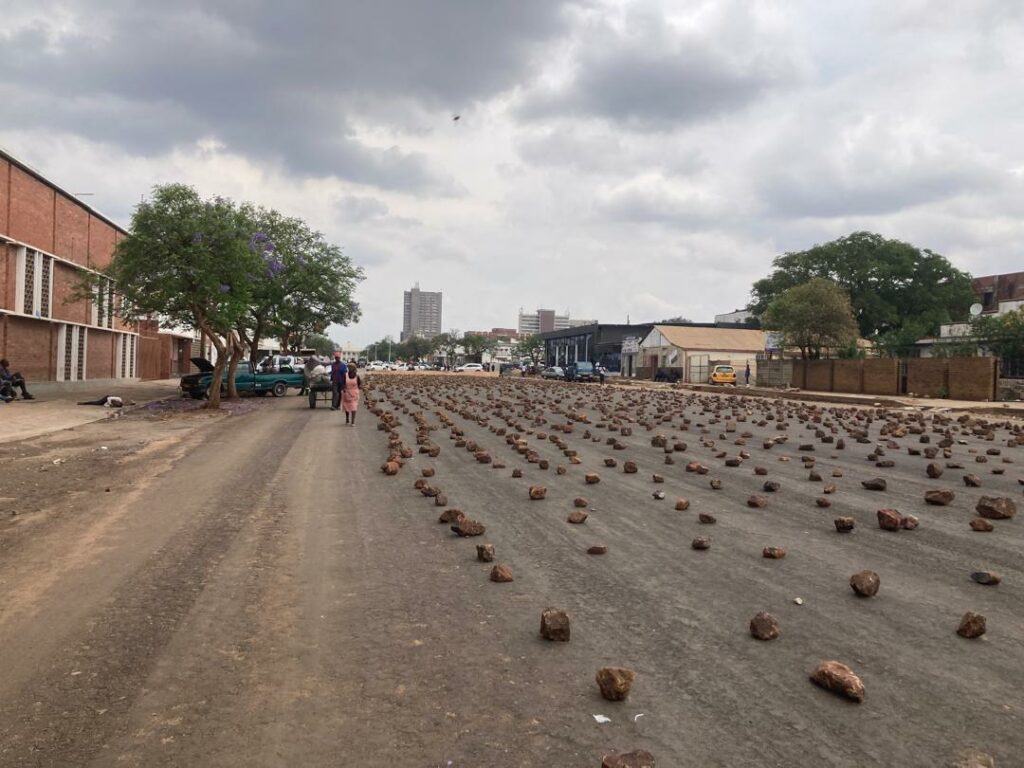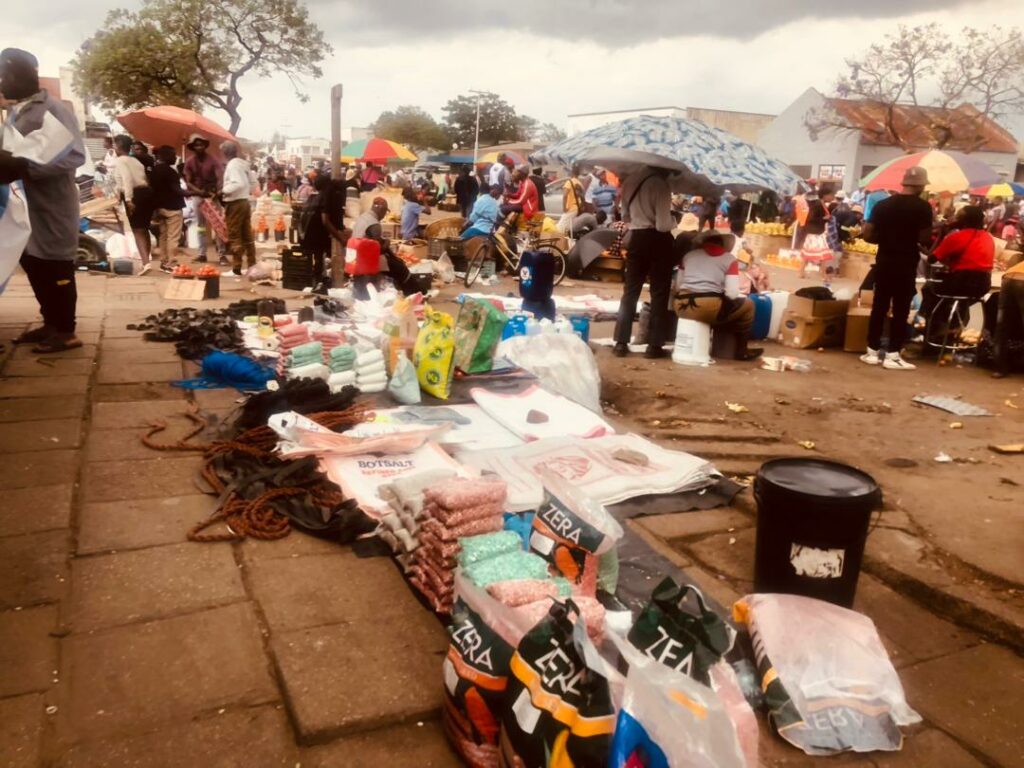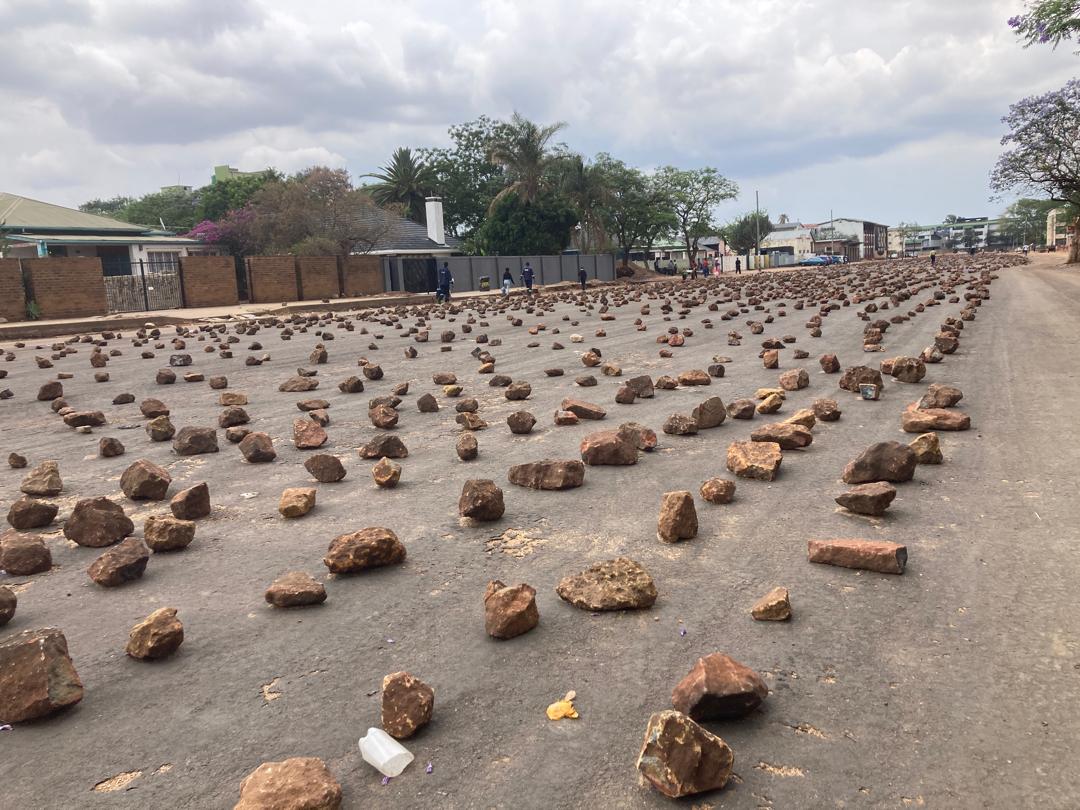The city of Bulawayo is witnessing ongoing efforts to rehabilitate its roads, with recent works on major arteries such as George Silundika Avenue giving residents a glimmer of hope on infrastructural developments.
Overseen by Mayor David Coltart and the Bulawayo City Council (BCC), the road repairs, have sparked mixed reactions from residents who both commend the improvements and highlight significant challenges.

“George Silundika on the mend,” remarked one resident in a Ward 2 community WhatsApp group expressing approval of the visible efforts to restore the city’s infrastructure.
Another resident was cautiously optimistic, stating, “The mayor is trying (Uyazama uMlungisi),” but voiced concern about persistent obstacles, particularly on 5th Avenue, which has become a hub for street vendors from diverse backgrounds.

The bustling 5th Avenue poses unique challenges for the city’s road works due to its high volume of informal traders, who sell everything from fruits to electronics.
As Bulawayo’s road rehabilitation projects progress, the BCC and city leaders face the dual challenge of addressing immediate infrastructure needs while grappling with the socioeconomic issues symbolised by 5th Avenue.
One resident captured the issue succinctly: “The mayor is trying, but 5th Avenue is a challenge. There is no such road. It’s littered with people of all walks of life and wares.”
Another resident, Helmand Shoko, offered a historical perspective, expressing disappointment in the decline of Bulawayo’s infrastructure since the end of the colonial era.
“Coltart inherited a terrible legacy. Before Coltart, no development was known. As soon as the white era came to an end, the looting spree began,” Shoko reflected, citing corruption and institutional decay as key factors.
He argued that “politicians became the law unto themselves,” resulting in “the demise of accountability and governance systems,” which he believes is a root cause of Zimbabwe’s current struggles.
The congested state of 5th Avenue has drawn attention to the broader economic challenges faced by Zimbabwe.
Tichareva, another local resident, emphasised that the informal economy along 5th Avenue is symptomatic of a national economic crisis.
“The 5th Avenue issue is a national challenge beyond BCC,” he explained. “The productive industries have virtually closed. Young people who should be gainfully employed are now eking out their survival by selling anything and everything on the streets.”
He called on the government to engage in consultations with local councils and stakeholders to craft a cohesive economic blueprint to address poverty and job scarcity.
“Without such progressive action, our economy will remain in the chaotic doldrums,” Tichareva warned.
Others, however, view the roadworks with scepticism. Dubley, a resident, suggested that internal city politics influence the choice of roads targeted for repair.
“BCC internal politics allow such meaningless repairs to appease a few residents,” he claimed, arguing that the selection of streets for rehabilitation serves the needs of vendors but does little to foster long-term improvements for the city.
Dubley also questioned the authenticity of opposition politics in Zimbabwe, referencing the 2017 military intervention and the opposition’s response to it.
“Where on this earth have you ever seen opposition supporters welcoming a suspicious military takeover?” he asked.
Dubley believes this reflects a failure of political leadership and maturity, stating that true opposition should “stand firm against all odds.”

